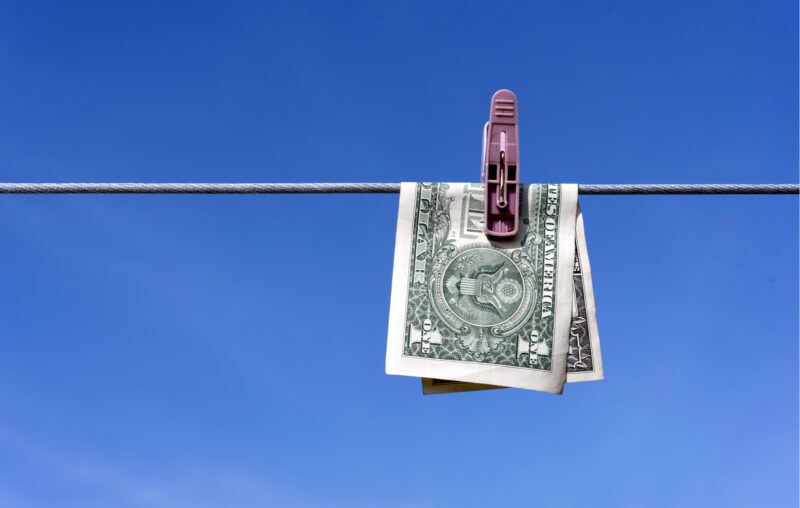Pornhub: Victim of Visa and Mastercard Censorship or Money Laundering Risk?

Pornhub, the world’s largest aggregator of pornographic videos, has been cut off from accepting credit cards. The company is only accepting cryptocurrency for its premium service at present.
It happened quickly. On December 4, New York Times columnist Nicholas Kristof accused Pornhub of being “infested with rape videos.” Kristof went on to accuse the site of monetizing “child rapes, revenge pornography, spy cam videos of women showering, racist and misogynist content, and footage of women being asphyxiated in plastic bags.”
By December 10, Mastercard and Visa had banned the use of their credit cards on Pornhub. “Our investigation over the past several days has confirmed violations of our standards prohibiting unlawful content on their site,” said Mastercard in a statement.
In an article criticizing the Pornhub deplatforming, the EFF’s Danny O’Brien and Rainey Reitman worry about the power that Visa and Mastercard exercise over what we can watch. “Any website or individual can find itself running afoul of Visa and Mastercard’s moral sensibilities and shut off from receiving online payments,” they write. These financial chokepoints have become a sort of “undemocratic hand” that is levered by moral crusaders to censor their targets.
Censorship by Mastercard and Visa worries me. These are oligopolies, after all. Being capriciously cut off could mean the death of an online business. But I don’t think that the Pornhub example is symptomatic of a broken system. If anything, I’d suggest that it’s an example of the system working.
Child pornography is morally wrong. It is also illegal. Surely Mastercard and Visa don’t have the obligation to let payments for illegal goods and services flow across their networks.
In fact, Mastercard and Visa would probably be breaking the law if they were to knowingly abet illegal transactions. Title 18 Section 1957 of the United States Code, which pertains to money laundering, makes it a felony for a financial institution to “knowingly engage” in monetary transactions in any criminally derived property or unlawful activity. This applies not only to drugs, but bribery, kidnapping, child porn, and any other shady dealing, as well.
If a card network were to permit child porn to be traded over their networks, it could be accused of money laundering. Viewed in this light, Visa and Mastercard’s choice to cut off Pornhub isn’t one of mere moral sensibilities, as O’Brien and Reitman allege, but legal liability.
This same motivation explains why many U.S banks are hesitant to provide financial services to marijuana companies. It’s not that bankers have any particular revulsion to pot. According to the American Bar Association, all proceeds generated by U.S. marijuana-related businesses are unlawful in the eyes of Federal law, and thus all “financial transactions with such proceeds (including accepting deposits, making loans, and other banking services) may constitute illegal money laundering.”
In their article, O’Brien and Reitman go on to suggest that it is not the job of the card networks to police online speech. The card networks do not have the skills, expertise, or authority to determine the complexities of what sorts of porn, books or movies are legitimate or not.
The authors may be right that card networks are not experts at figuring out whether a video is illegal. But current money laundering laws require financial institutions to figure it out.
Mastercard and Visa perform this duty by requiring any merchant who wishes to use the card networks to be subjected to a due diligence process. Even after a merchant has passed through due diligence, Mastercard and Visa continue to monitor it in order to ensure that rogue vendors haven’t snuck through, with any bad actors being quickly cut off. By setting up these best practices, the card networks can prove to any judge that might accuse them of abetting illegal activity that they have not been negligent.
If O’Brien and Reitman think that Mastercard and Visa shouldn’t be engaged in the complicated task of telling right from wrong, then the appropriate course of action isn’t to vilify the card networks, which are just doing their job. They should call for an appeal of Federal money laundering laws.
Pornhub’s deplatforming is so controversial, in part, because it appears to be arbitrary. It was the New York Times that ultimately served as the fuse, not Visa or Mastercard internal checks.
Unfortunately, Visa and Mastercard can’t catch all unlawful activity processed by their networks. Sometimes it is the public that will be the first to notice illicit stores accepting credit cards. In the case of child pornography, the public can report material to the National Center for Missing & Exploited Children (NCMEC) via CyberTipline. NCMEC evaluates whether it is indeed child porn and then notifies the financial institutions that are involved, which can then choose to cut off the offending merchant.
With Pornhub, the NCMEC process didn’t seem to work. (Whether this is an example of the reporting system failing is another debate.) Instead, the public discussion reached a sufficiently loud decibel that it was no longer possible for Visa or Mastercard to just say “we didn’t know.” At that point they were forced to take action lest they implicate themselves as money launderers.
And so while Kristof’s controversial article in the New York Times may seem like puritanical moralizing, we can also think of the media as providing one extra warning system to card networks about illicit usage of their networks.
O’Brien and Reitman finish off by saying that “those praising Mastercard and Visa’s actions now should recognize that these censorship powers are more often used against those without power.” We needn’t praise the card networks. But we should recognize that it is illegal for financial institutions to facilitate the exchange of illicit goods and services. Cutting off child porn providers is exactly what the law requires these networks do.
Pornhub, for its part, has already begun taking steps to comply with the law. It has eliminated all unverified content, expanded moderation, and removed the ability for users to download content. Whether these steps will be sufficient to regain access to card networks remains to be seen.










